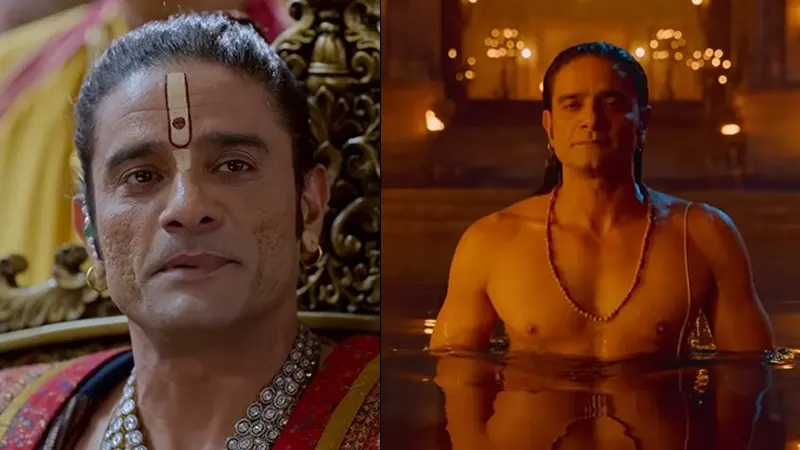After a delay in release due to its legal battle over hurting religious sentiments, Maharaj was released on Netflix on June 22, 2024. Helmed by Siddharth P. Malhotra, Maharaj marks the debut movie of Aamir Khan's son Junaid Khan. Apart from Junaid Khan, Maharaj features Jaideep Ahlawat as Jadunathji Brijratanji, Shalini Pandey as Kishori, Sharvari Wagh as Viraaj, Priyal Gor as Leelavati, Jay Upadhyay as Giridhar Khawas, Meher Vij as Mahuji, Sunil Gupta as Dadabhai Naoroji and more in the leading roles. Netflix's movie Maharaj is based on the true events of the infamous Maharaj Libel Case of 1862 in which Junaid Khan is playing the character of journalist Karsandas Mulji. Since you have landed on this page, True Scoop News assumes you have already watched the movie on Netflix and are wonder about real-life Jadunathji Brijratanji or Jadunathji Maharaj aka JJ. Below is all about Jadunathji Brijratanji & Maharasj True Story
Maharaj True Story
Before lifting the lid from real-life Jadunathji Brijratanji aka JJ, let's understand Maharaj's True Story in brief. Maharaj Libel Case of 1862 was among the most high-profile cases of pre-independent India. The case was against Nanabhai Rustomji Ranina and Karsandas Mulji. It was alleged that their public accusation was that the religious leaders of Pushtimarg had sexual liaisons with women devotees, & was defamatory for the petitioner.
Notably, the case commenced on 25 January 1862 and ended on 4 March 1862. Thirty-one witnesses were examined for the plaintiff and thirty-three for the defendant. The judgment was given on 22 April 1862 in favour of the defendant, Karsandas Mulji. The plaintiff was asked to pay Rs. 11,500 to Karsandas, who had to bear a cost of Rs 13,000. After winning the case, journalist Karsandas Mulji was called India's Martin Luther King by the Western media.
Who was Jadunathji Maharaj?
Notably, in the movie, Karsandas Mulji was sued by Jadunathji Maharaj aka JJ. Karsandas Mulji in his newspaper accused Jadunathji Maharaj of brainwashing women and getting sexual favours in the name of rituals. The movie has showcased the ritual was called 'Charam Sewa' (Divine Service). In fact, Maharaj movie showcased devotees used to pay to witness Charam Sewa from the windows of Haveli. In the charm sewa, Jadunathji Maharaj used to develop physical relationships with women devotees saying that sacrificing their body is the ultimate devotion to god and the godmen. Once, Jadunathji Maharaj did something similar with Karsandas Mulji. After facing this, Karasandas Mulji started to write against Jadunathji Maharaj aka JJ. After the verdict, the movie showcased, people stopped worshipping and believing in JJ. Although JJ was not arrested, the court recommended that a criminal case should be filed against him.
Talking about real-life Jadunathji Maharaj aka JJ, Times reported that the makers have used a few elements of fiction in the movie and the character of JJ may be fictional. However, another report suggests that Jadunathji Brijratanji was the head of the Pushtimarg sect, who filed the defamation case against journalist Karsandas Mulji which led to The trial, likened to the “greatest trial of modern times since the trial of Warren Hastings.”
For those who are not aware of Pushtimarg, it is also known as Vallabha Sampradāya. Pushtimarg is a sect of Vaishnavism. It was founded in the early 16th century by Vallabha and was later expanded by his descendants, particularly Viṭṭhalanatha. Pushtimarg adherents follow universal-love-themed devotional practices of youthful Krishna which are found in the Bhagavata Purana and those related to pastimes of Govardhana Hill.
